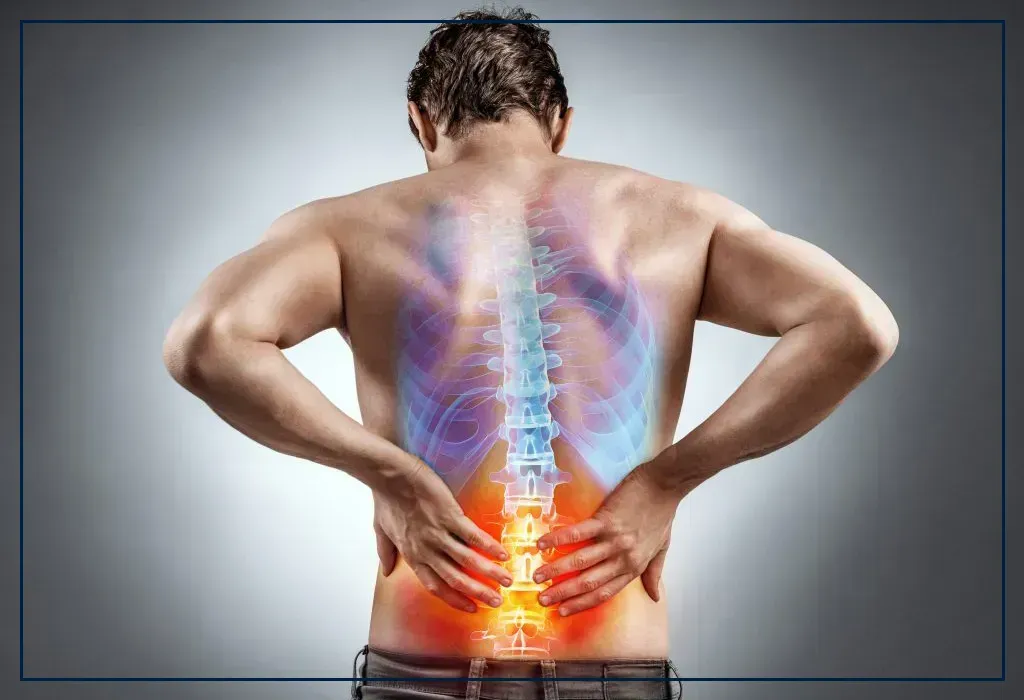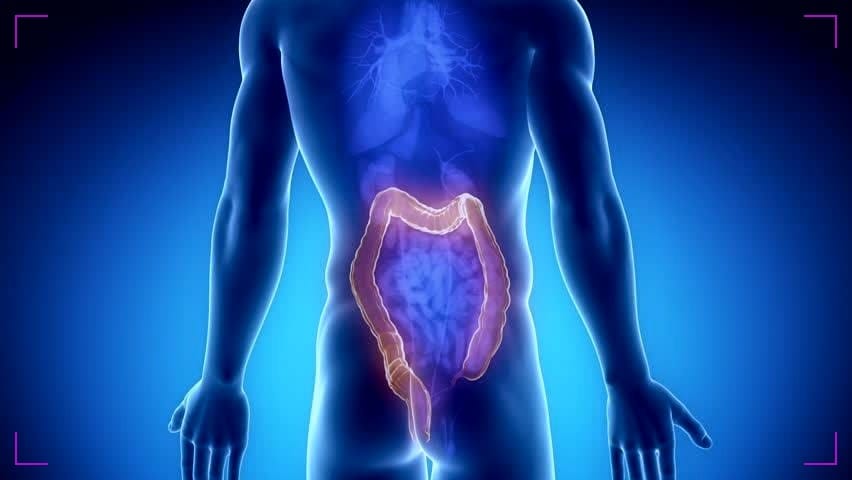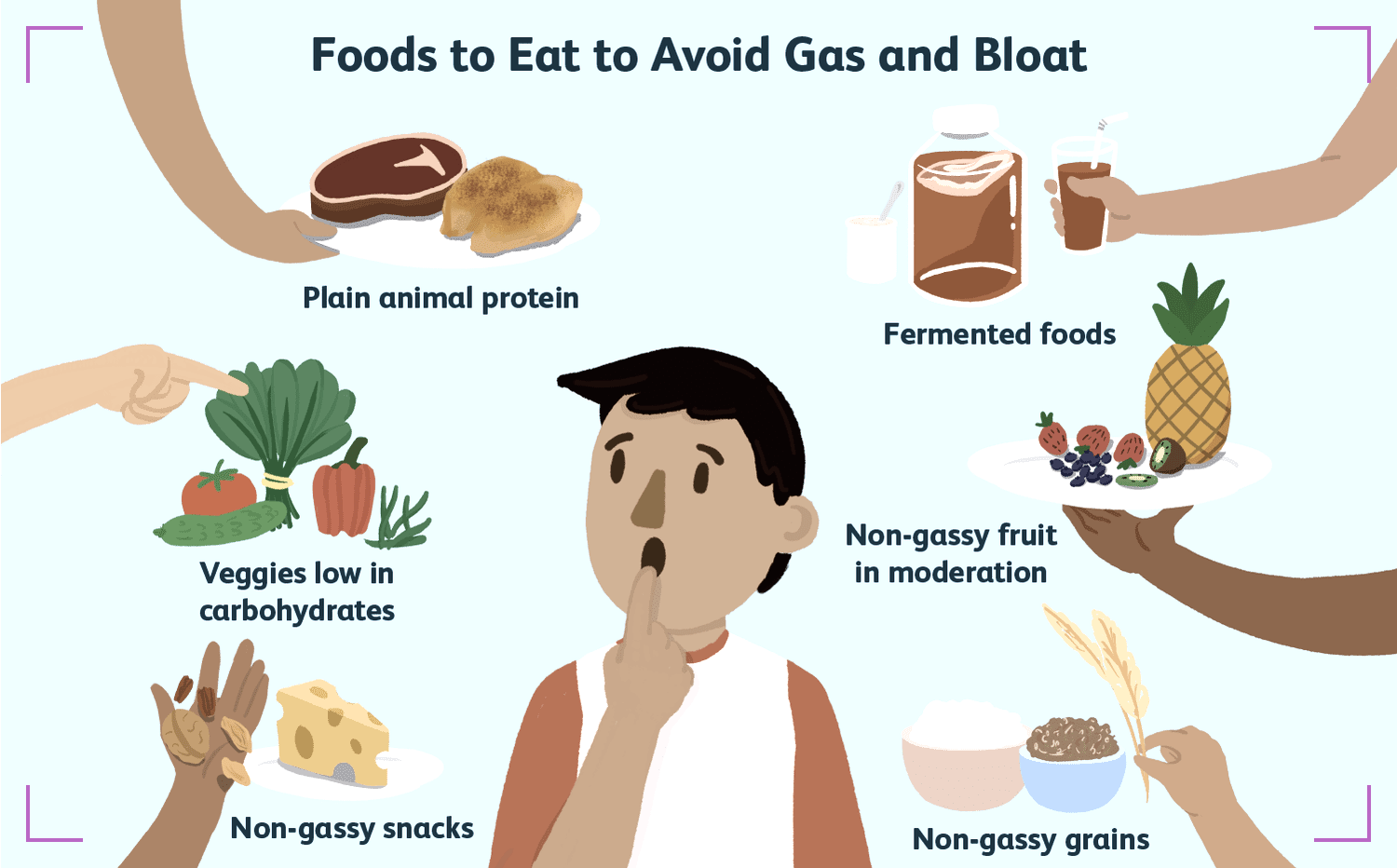Can Gas Cause Back Pain? Understanding the Connection
Can gas cause back pain? Yes! Trapped gas can create pressure, leading to discomfort in the back. Learn why it happens and how to find relief.

Digestive issues are often considered a common inconvenience, but for many, they can lead to unexpected complications, such as back pain. The question can gas cause back pain? is more frequently asked than one might think.
This comprehensive guide will explore the connection between gas and back pain, providing insights into how these two seemingly unrelated conditions can be intertwined.
Key Takeaways:
- Gas can cause back pain, often due to pressure buildup in the abdominal region affecting the back muscles.
- Understanding the digestive process and identifying triggers for gas can help manage and prevent associated back pain.
- Simple lifestyle changes and remedies can alleviate discomfort from gas-related back pain.
The Digestive Process and Back Pain
The human digestive system is a complex network that can influence various body parts, including the back. When digestion is disrupted, it can lead to gas buildup.
This excess gas can cause pressure and bloating, which may result in discomfort that radiates to the back area.

The proximity of the digestive organs to the back muscles means that any distension or bloating can directly affect the back.
Identifying Gas-Related Back Pain
Identifying gas-related back pain involves recognizing associated symptoms and considering the context. Here are key indicators:
- Gastrointestinal Symptoms: Gas-related back pain is often accompanied by gastrointestinal symptoms, including bloating, belching, flatulence, and a feeling of fullness. Gas may contribute to these symptoms that coincide with back pain.
- Temporary Relief with Gas Passage: Gas-related back pain tends to subside once the excess gas is expelled, either through belching or passing gas. If the pain diminishes after these actions, it suggests a potential link to gas.
- Digestive Context: Consider the context of your digestive health. If you've recently consumed gas-producing foods or experienced changes in bowel habits, it aligns with the possibility of gas-related discomfort.
- Non-Musculoskeletal Characteristics: Gas-related back pain is typically non-musculoskeletal and lacks the characteristics of structural issues. If the pain is sharp, shooting, or radiates down the leg, it may indicate a different origin and requires medical evaluation.

While gas-related back pain is often benign, it's crucial to be aware of any unusual or persistent symptoms. If in doubt or if the pain is severe, consulting with a healthcare professional can help rule out other potential causes.
Common Causes of Gas
Several factors can contribute to the production of gas in the digestive system. These include certain foods that are harder to digest, such as beans, lentils, and cruciferous vegetables like broccoli and cabbage.
Additionally, carbonated beverages and artificial sweeteners can also lead to increased gas.
Eating habits, such as eating too quickly or talking while eating, can cause you to swallow excess air, which contributes to gas buildup.
- Swallowing Air: Eating or drinking too quickly, chewing gum, or drinking through a straw can introduce air into the digestive system.
- Gas-Producing Foods: Certain foods, such as beans, lentils, broccoli, cabbage, onions, and carbonated drinks, can produce gas during digestion.
- Bacterial Fermentation: The natural bacteria in the colon can ferment undigested carbohydrates, producing gases like carbon dioxide, methane, and hydrogen.
- Digestive Disorders: Conditions like irritable bowel syndrome (IBS), lactose intolerance, and celiac disease can contribute to increased gas production.
- Infections: Gastrointestinal infections or overgrowth of certain bacteria in the small intestine can result in excessive gas.
- Constipation: Slowed bowel movements can lead to increased fermentation of undigested food, causing gas buildup.
- Medications: Some medications, including certain antibiotics and laxatives, may contribute to gas formation.
Dietary Adjustments to Reduce Gas
To minimize gas production, consider making dietary adjustments. Introduce high-fiber foods gradually to allow your digestive system to adapt.
Be mindful of food combinations and track which foods seem to trigger gas production.
Keeping a food diary can be an effective way to identify and eliminate problematic foods from your diet.
To reduce gas and alleviate discomfort, consider making the following dietary adjustments:

- Limit Gas-Producing Foods: Identify and limit the intake of foods that produce gas, such as beans, lentils, broccoli, cabbage, onions, carbonated drinks, and certain fruits.
- Gradual Fiber Increase: Gradually increase fiber intake to allow the digestive system to adjust. High-fiber foods, like whole grains and fruits, can initially cause gas but often improve with consistent consumption.
- Be Mindful of Sugar Substitutes: Some artificial sweeteners, like sorbitol and mannitol, found in sugar-free products, can cause gas. Be mindful of their consumption.
- Lactose Management: If lactose intolerance is a concern, consider lactose-free dairy products or use lactase supplements to aid digestion.
- Probiotics: Incorporate probiotic-rich foods, such as yogurt with live cultures, or take probiotic supplements to promote a healthy balance of gut bacteria.
- Hydration: Drink plenty of water to aid digestion and prevent constipation, which can contribute to gas.
- Meal Size and Timing: Opt for smaller, more frequent meals rather than large meals. Eating slowly and avoiding heavy meals close to bedtime can also help.
These adjustments, coupled with mindful eating habits, can contribute to a more comfortable digestive experience by minimizing excessive gas production.
Physical Activity
Regular physical activity is not only good for overall health but can also help prevent and relieve gas-related back pain.
Movement encourages the passage of gas through the digestive system and can reduce bloating.

Simple exercises like walking or gentle stretching can be particularly beneficial in managing symptoms.
Stress and Digestive Health
Stress can have a significant impact on digestive health, potentially leading to increased gas and back pain.
The body's stress response can slow digestion, resulting in gas buildup. Techniques such as deep breathing, meditation, and yoga can help manage stress levels and, in turn, may alleviate digestive discomfort.
Over-the-Counter Remedies
For immediate relief from gas-related back pain, over-the-counter remedies like antacids, simethicone products, and activated charcoal can be effective. These medications can help reduce gas buildup and the associated pain.
However, it's important to use these remedies as directed and consult with a healthcare professional if symptoms persist.
Home Remedies and Lifestyle Changes
In addition to dietary adjustments and physical activity, other home remedies can help manage gas and back pain.
Drinking herbal teas, such as peppermint or chamomile, can soothe the digestive system.
Ensuring you're staying hydrated and practicing good posture can also make a difference in preventing gas buildup and back pain.
Hydration
Staying well-hydrated is essential for a healthy digestive system. Adequate fluid intake helps food move through the intestines smoothly, reducing the risk of gas and constipation.
Aim to drink plenty of water throughout the day, and consider reducing the intake of diuretic beverages like coffee and alcohol which can lead to dehydration.
Self-Management
Back pain is one of the common experiences during adulthood life and usually people recover quickly with little or no treatment. The best way to deal with this is by staying active and remaining positive about recovery.
Even in people with recurrent or persistent back pain, the most effective treatments involve things you can do yourself, such as:
- Exercising and staying active as much as possible – talk with a physiotherapist or an exercise physiologist if you need specific advice for your situation.
- Managing stress is important to help control pain and maintain physical function and emotional well-being.
- Weight management – try to maintain a healthy weight to lessen the strain on your back.
- Getting up and moving if you have been sitting or standing in one position for regularly (for example when at work, or while traveling). Take regular breaks to get up, stretch, and move around.
- Involve in your usual home, leisure, and social activities – social connections are extremely important to recovery.
- Quit smoking – smoking increases your chances of developing back pain.
- Aiming to stay at work, on restricted duties if required, and developing a plan with your employer to return to your full work. Your doctor, physiotherapist, and occupational therapist can help you with information about how to stay at work.
- Lifting and carrying safely – if you’re picking up a heavy load, squat down, hold the object as close to your body as practical, and lift by using your legs. Make sure you keep your back straight. Get some help from another person or use equipment such as a trolley.
- relaxing – learn some relaxation techniques to reduce stress levels and related muscle tension. Try massage, heat or cold packs, and gentle exercise. Seek advice from a physio.
- sleeping on a good mattress – a medium to firm mattress is best for preventing back pain. It should be firm enough to support your shoulders hips and buttocks without sagging and should keep your spine straight. Surfaces that are too soft or too hard can aggravate a sore back. Avoid sleeping on your stomach.
- Posture.
Summary
FAQ Section
Q1. Can gas cause back pain, and how does it happen?
Yes, gas can contribute to back pain, and the mechanism behind it is often related to the pressure and bloating that occurs in the digestive system. When excess gas accumulates in the gastrointestinal tract, it can lead to distension or bloating.
The expanding gas can exert pressure on surrounding organs, including the intestines and stomach. This pressure can then be transferred to the back, causing discomfort and pain in the lumbar region.
Additionally, the diaphragm, a muscle that separates the chest cavity from the abdominal cavity, is also involved. When gas accumulates in the stomach, it can push against the diaphragm, causing it to rise.
This upward movement of the diaphragm can indirectly affect the nerves in the back, leading to sensations of pain. While gas-related back pain is typically not serious and resolves on its own, persistent or severe pain should be evaluated by a healthcare professional to rule out other potential causes.
Q2. What are the common symptoms of gas-related back pain?
Gas-related back pain is often accompanied by other gastrointestinal symptoms. Bloating, belching, flatulence, and a sensation of fullness are common signs of excess gas in the digestive system.
The back pain associated with gas is usually temporary and may vary in intensity. It may be a dull, achy discomfort or a sharper pain. The pain is typically relieved after passing gas or having a bowel movement.
It's important to note that while gas can be a cause of back pain, there are various other potential reasons for back pain, including musculoskeletal issues, nerve compression, or underlying medical conditions.
If back pain is persistent, worsening, or accompanied by other concerning symptoms, it's advisable to seek medical attention for a thorough evaluation and appropriate diagnosis.
Q3. How can gas-related back pain be relieved or prevented?
Managing gas-related back pain often involves addressing the underlying digestive issues. Making dietary changes, such as avoiding gas-producing foods like beans, carbonated drinks, and certain vegetables, can help reduce gas formation. Eating smaller, more frequent meals and chewing food thoroughly can also aid in digestion and minimize gas.
Regular physical activity can promote healthy digestion and reduce the likelihood of gas-related discomfort. Over-the-counter medications containing simethicone may help break down gas bubbles in the digestive tract. Additionally, staying well-hydrated and maintaining a fiber-rich diet can contribute to overall digestive health.
Suppose gas-related back pain persists or is accompanied by alarming symptoms such as unexplained weight loss, changes in bowel habits, or severe abdominal pain. In that case, it's crucial to consult with a healthcare professional to rule out more serious underlying conditions and determine the appropriate course of treatment.
